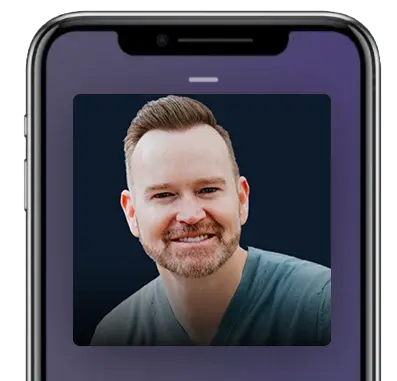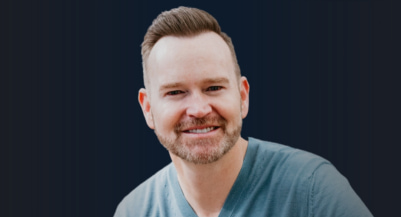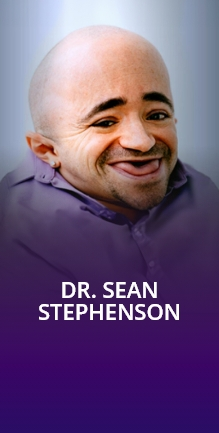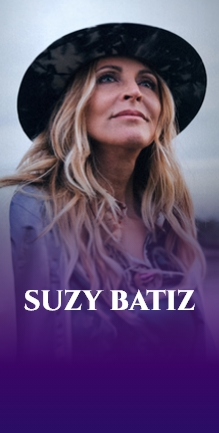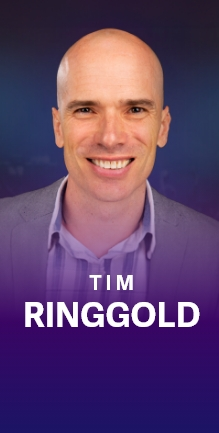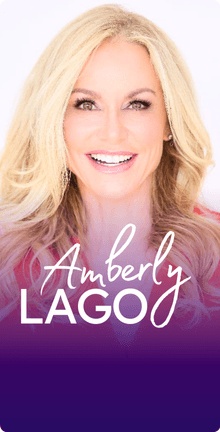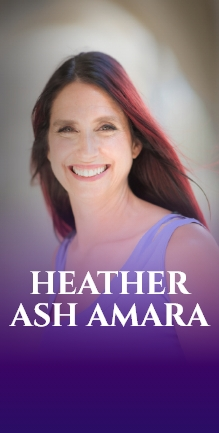In this Episode
- [06:16]Calvin Bagley explains that while he had the idea of writing a memoir, the experience and support from Genius Network helped shape the memoir into a more complete and honest account.
- [10:16]Calvin describes the extreme beliefs in their household, including views on education, healthcare, and religion.
- [16:32]Calvin talks about their spiritual journey and the presence of a guiding force that helped them through difficult moments.
- [20:26] Stephan and Calvin discuss the concept of quantum physics and the observer effect.
- [27:15] Calvin emphasizes the importance of human interaction and the unique value it brings, especially in the context of AI advancements.
- [34:57]Stephan and Calvin explore the idea of soul contracts and their impact on our lives.
- [39:19]Faith, Signs, and Synchronicity: Stephan and Calvin on God’s Direction.
- [44:50]Calvin’s perspectives on Hell, Judgment Day, and the Centrality of Faith.
- [49:16]Calvin shares their experience as a bishop in the Mormon church and the challenges of being a spiritual leader.
- [56:32]Calvin offers final words of encouragement and advice for listeners, emphasizing the importance of faith and personal growth.
Calvin, it’s so great to have you on the show.
Man, it’s good to be here, Stephan. Thank you for having me.
We know each other through Genius Network, which is Joe Polish’s mastermind. Joe’s been a guest on this show and on my other show on Marketing Speak. He’s a great guy and an incredible networker. I know he probably cringes at the thought that his group is a mastermind, or some people think of it as a mastermind. I don’t know what else to call it.
I’m grateful that this group has helped me to step into a new version of myself. I’ve had a lot of epiphanies and a lot of transformative moments because of people in this group. And I’m grateful for us to know each other through this group. Maybe sharing something profound or meaningful in some way is part of your experience of being in Genius Network for however many years you’ve been in it.
You are so inspired. This is a great place to start, honestly, Stephan, because part of the reason that I’m sitting here is that I belong to this group and have gotten to know people like you and many others who’ve inspired me, chief among them, Joe Polish, of course. I have so much praise for him and how he has helped all of us in some way, sometimes directly, sometimes indirectly.
Part of the reason that I’m sitting here is that I was in one of my early meetings at Genius Network, where I was sitting there listening to business leaders and others. We had this whole presentation from a very well-known business leader who wrote the book Traction and started EOS.
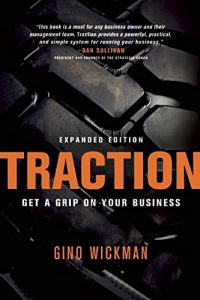
You know who I’m talking about. We’re sitting there, and he’s talking about how you expect to get all of this business information. “Oh, you know, it’s Joe Polish. It’s going to be marketing and everything.” He always says, “You know, sell them what they want and give them what they need.”
So, here’s me getting what I needed. We’re going through this visualization where we’re looking into our hearts, which sounds crazy. You’re this ‘Mastermind for Marketing’. I opened my heart with my eyes closed. I’m like, “Okay, I’ll follow along. This is interesting. I like this kind of stuff. I’m a very spiritual person. So I’m following along.” I’ve got my eyes closed.
I open my heart, and I just see darkness like shame and guilt. I don’t know what it is. I’m trying to give it names, but I can’t label it with names. There was just this void there. “Maybe you don’t belong, or you’re not good enough, or you’re pretending.” It was just this realization that I don’t love myself. ‘Why don’t I love myself?’
I have done so many good things. I’ve been impactful on many people. I’ve made mistakes and I’ve hurt people, too, along the way. I’m human and I’m not perfect, but I’ve tried really hard to be a good person and live a good life. ‘Why don’t I love myself?’ This happened sitting in a Genius Network meeting, maybe two years ago. It started on this journey, following the journey of this business leader whom I respect and look up to so much.
Which is what he was sharing with us, and it took me on a journey to say, “Why don’t I love myself?” And why is there something dark inside of me that has led me to write my memoir? I was not in a place where I could have accepted all the things that I now share with the world.
Because of that shame and whatever it was inside of me, and I’m still in recovery, I’m working through things. Still, today I can say that I have found the capacity to appreciate and love myself, to see some light inside my heart, and to understand what was happening and why there was a disconnect between who I was and how I saw myself.
That’s a kind of heavy start to all this. But Genius Network and the group of people that I associate with there, including you, Stephan, have had a major impact on my life and the direction of my life.
I’ve made mistakes and I’ve hurt people, too, along the way. I’m human and I’m not perfect, but I’ve tried really hard to be a good person and live a good life.
Would you have written your memoir if you hadn’t been in the Genius Network?
I had the idea of writing a memoir for some time, but I can tell you that it probably would have been a different memoir. I don’t know that it would have been as filled with God. God’s always been a part of my life. There’s no doubt I wouldn’t be here without God.
We can talk about what that means to all different people and everything, but I wouldn’t be here without that. So it would be part of it, but I don’t know that it would be as complete or whole and that I could reach the end where I say I accept everything that’s happened to me.
I wouldn’t be here without it. Good, bad, negative, positive, the things I did wrong, the things that were done wrong to me, thank goodness they all happened or else I wouldn’t be here. So, I end by accepting all of those things and accepting myself. I think I was on a path to writing my memoir. It wouldn’t have been the same memoir.
Would you say that it’s been cathartic for you to write the memoir, and you had some sort of metamorphosis, some healing that came about because you put pen to paper?
Yes, it has been. However, healing is not a single event or thing. It’s this long journey of many things. I’ve been healing since I first left home. I was raised in a religious extremist, a Mormon home that I would call ‘fundamentalist,’ but not in the sense that most people think of a fundamentalist Mormon home. You think of polygamy and some of these other things from the Mormons of the 1800s.
There wasn’t polygamy in my home, but there were these fundamentalist beliefs, things that don’t make any sense in the context of religion, like eating chocolate is evil, wearing shorts even for men is immodest and forbidden, and no meat of any kind. I mean, we had some meat, but no red meat. No pork, pork is unclean; it’s all these ‘boutique Mormon-esque,’ as I call them, beliefs that are not part of the theology of the actual Church of Jesus Christ of Latter-day Saints, but that my parents had adopted.
Whatever dark night of the soul you’re facing, there is light on the other side, and it can turn into your greatest blessing. Share on X
Chief among them was about institutions like school, education, and that those things were evil and that they taught evil things. We were homeschooled. I was homeschooled. My older siblings actually experienced school when they were younger, but by the time I was born, the seventh of nine children, homeschooling was all that was available. But it wasn’t homeschooling. I met a lot of homeschoolers, and most of them had textbooks and took classes at home, with their parents teaching them various subjects. We didn’t have any of that. By the time I was 10, there wasn’t even a book for me to study. When I was seven years old, I went to my mom and I said, “I really want to learn to read.”
She said, “Well, I guess you’re old enough.” Like she did with almost everything, she would assign one of my four older sisters to fulfill the duties of whatever it was that she should have honestly been doing. My sister, 10 years older than me, taught me to read, not before I had seen it in our living room; we had all the alphabet above the top of the room, and I didn’t know which way it started. I was so excited.
I’m getting ready to learn to read. I memorized the alphabet backwards, Z-Y-X-W-V-U-T-S-R-Q-P-O-N-M-L-K-J-I-H-G-F-E-D-C-B-A, because I didn’t know where it started. This was my beginning. I’m going through and telling my story and getting caught up in it, and not exactly answering your question. We’ll share the story as we go.
I come through that, and I overcome so much of the fundamentalism. Much of the educational void is to reach a point of success in my life. I’m very proud of that, but I’m also aware that there were so many people and influences that, without them, I wouldn’t be here.
Weren’t there some moments where it was a little dicey, like whether you’d survive or something, you weren’t taken to the hospital because hospitals were considered evil or the doctors were or whatever, and it was like almost the end of your rope when they finally took you? Can you speak a little bit more about that?
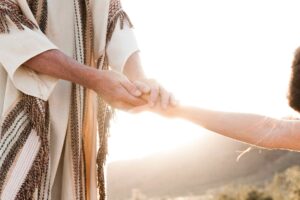
Absolutely. Along with education, modern medicine was looked upon as being something used to manipulate and control people or to make people addicted. Some people come out of a childhood like this, and they swing very far the other way; they go against everything that was taught to them. They go against all of their parents. They reject all of the religious aspects and everything.
I have to say that I have made my own beliefs, and my own beliefs contain some of what my parents’ beliefs were, the parts that I believe now to be true of my having created them myself, not given them.
Many that I have through my experience and through my connection with God and people created by my own. As a healthcare entrepreneur, my companies have helped over 60,000 people make informed decisions about their health, Medicare insurance, and other related matters.
We help people all over the country. It’s been amazing, the amount of impact that my team has had. We help people; we’re their entry point to healthcare, ensuring they have the necessary insurance and access to doctors and other resources. For me, I have this balance where I believe in modern medicine, particularly some of the incredible advances. At the same time, I have skepticism about many of its recommendations. I don’t want to be on medication every day of my life.
I think that we can take care of ourselves naturally in so many ways. I have this interesting mix, but my parents were all the way into natural medicine, into some very interesting things. My dad would make his own colloidal silver, a home remedy that I have used myself, but very carefully. He would make it using a battery pack and a bar of silver, submerging it in water.
God doesn’t force us. He puts signposts along the way so we can climb our own mountains. Share on X
When the solution looked milky enough, he would disconnect it. Who knows how much silver he was ingesting? At one point in my childhood, I came down with pneumonia, and for two weeks, I struggled until the point where one night I literally could not breathe and was very near death. I knew it. I was like 12, 13 years old, and I knew I was dying. I could not breathe.
I would take these very shallow breaths because if I tried to feel my lungs, then I would feel like a balloon filling up inside of me. It would make me cough, and I would cough until I would puke, and I just couldn’t breathe. I was just white as a sheet, and my lips were turning purple, all that. My father was administering horse penicillin to me.
We had a veterinary, bought for veterinary use only, sitting in the fridge that we all dreaded, because if you got sick. I was terrified, like any kid of getting a shot. My dad would take us over his knee regardless of our age, pull our pants down and give us a shot in the butt, all the things that a child and a teenager would be terrified of and embarrassed about and everything.
My dad had administered like seven of these horse penicillin shots to me. Finally, he consented to taking me to the hospital when he realized that I really was at the point where I was not recovering, and it was getting very serious. We went to the hospital, and I received antibiotics and healed rather quickly.
But my father at that time argued with the doctor about the way that he administered medicine to us and everything. Yes, there were these extreme beliefs that crossed from healthcare to school to religion and included pretty much any institution.
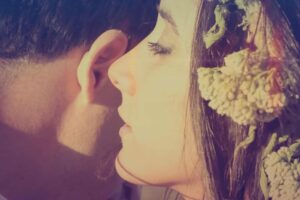
What was the benefit or the blessing in this crazy, death-defying, or was death-defying experience?
Sometimes, when things are very serious like that, you come to know another presence that exists around us, something unseen and untouched. I would say all of my siblings are spiritualists. Not all of them follow the Christian religious beliefs that I have, and I don’t report to or try to convince them of anything different or anyone else.
I think we can find God in our own way. That’s where I found God. I believe that there is incredible truth in it. For me personally, there certainly has been. In those moments, that’s honestly where I found that other presence that God was there with me. I relied on him and prayed to him, and I felt comfort, as if there was something or someone that loved me.
It’s not just something that you make up in your head. It’s something that you feel in your whole body. Some of these extreme moments are moments when I found the presence of some other guiding force that took me through and guided me, but didn’t make decisions for me.
I don’t believe in fate. I personally don’t like the idea of fate, but I have something that’s in between. It’s that I feel like God knew that I could arrive here where I am today, on the top of what let’s call it a ‘peak’, like it’s not a mountain peak, it’s a personal journey that I climbed to the top of my own mountain, that we all have our own mountain we need to climb. Not saying I’m at the top of where there is to go, I feel like God has more in store for me.
We’re absolutely living in a simulation. That doesn’t make the pain less real; it makes the lessons more profound. Share on X
But I think He knew that I could arrive here. But instead of making it all happen or taking away my choice, he gave me signposts along the way or put the right things in front of me, knowing that I would climb certain ladders so that I could arrive here. But I had the opportunity and choice in that.
That’s kind of the way that I see faith and God. It’s this interesting mix where he’s not forcing us, but he’s giving us the opportunity and putting signposts for us to help us arrive at the peaks that we’re supposed to climb in our lives.
Is there a point you can remember where you may have lost faith in yourself? Maybe it was a dark night of the soul, and I don’t know, maybe you were thinking of taking your life or something.
I’ve been very blessed to never be at a point where I felt all was lost or that desperate to end my life, but I have had many dark nights of the soul, and I have always loved the world around me. I love nature. I love hiking tall peaks and seeing the vastness of what I believe are God’s creations.
I see beauty in small things like the song of a bird. Those things have always carried me, and I’ve always loved outwardly the world around me. But what I didn’t know how to love was myself. I would hide that and run from it. It wasn’t to the point where I wanted to take my life.
I’ve always loved and wanted to be in the world, but wanted to keep a careful distance from my own self, from looking at my eyes in the mirror. Maybe I’d be ashamed of what I saw or afraid that I wasn’t measuring up.
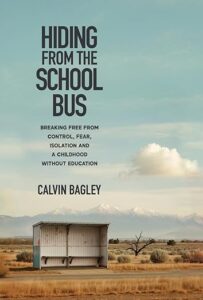
When you come from a background of homeschooling, no schooling, when I was at the end of my book, Hiding from the School Bus, because literally our parents told us to hide from the school bus, or it might take us to school. That would be a bad thing. We would be taught bad things and whatever. As a very young child, you can imagine, I didn’t want that to happen to me when all these other kids were doing it to them. I don’t want that. So I’m hiding for that reason.
But as I grew older, I didn’t want to be seen because I knew that I knew nothing. By the time I was a teenager and my friends were moving out, we had moved out of isolation and into a small town of about 400 people. Now that I had some, I actually began to make some friends through church and the neighborhood. I realized I did not measure up. If I went to school at that point, I would know nothing. I would be exposed as a fool and an uneducated person.
Then I hid from the school bus because I was ashamed, and I knew I knew nothing. Those things create in you this almost ingrained belief that you’re not normal, that other people are better than you, and that you are doing everything you can to catch up. For years and years, I just turned 50 last week, for so much of my life, I have been running as hard as I can to try to prove to everyone else, but actually just myself, that I was good enough and that I was ‘normal’.
That’s to answer your question. No, I never was going to take my life, but I was hiding from myself and afraid to look myself in the face and say, “Yeah, I’m good enough.”
You must be familiar with the term imposter syndrome.
Yes.
Does that resonate with you? Do you feel like maybe you have that and you still have it, or maybe you’ve overcome it?
I feel that I have come a hundred miles in overcoming my own imposter syndrome and have reached a point. Religious texts are very important to me. The Bible, the Book of Mormon, those have been guides for my whole life. I always have to give a nod to scripture and what I consider to be the word of God. But there’s a secular book called The Power of Now, by an incredible spiritual teacher.
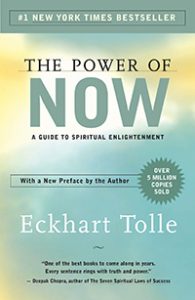
That book had a massive impact on me to quiet the voices in my head. You don’t quiet them by telling them to be quiet. You don’t quiet them by engaging with them. You just listen and feel and observe and become the observer. That has done more for me in helping me to overcome my anxieties and my imposter syndrome. So yeah, I’ll just call it work in progress.
And speaking of the observer, with quantum physics, you have the observer and the observer effect, where you change your reality. You change the system by just observing it, right? In the double slit experiment, you collapse the waves into particles, stop the observation and then it goes back to waves.
I’m curious. Where do you sit with the whole simulation theory hypothesis that we’re living in an illusion that none of this is real. How do you kind of make sense of quantum physics and all this stuff?
I love this stuff because I think that the closer we get to the truth of science, the closer we get to God. Because a lot of people think that God and science are at odds with each other, and I’m like, “That is the dumbest thing I’ve ever heard.” True science and God are one and the same.
The more we understand about science, the closer we get to understanding God. Now, I don’t know that we can truly understand because I feel that we are in a mortal, limited state and in Christianity, we talk about being mortal.
You could exchange mortal for simulation, for whatever that means. We don’t know what that means. When we have this veil that keeps us from seeing the spiritual realm removed from us, we might be really surprised and say, “Oh, that’s what that meant, because I was taking it this other literal way, right?” So what do I feel about that? I absolutely think that we are living in a simulation.
I think that is a totally Christian belief. Didn’t God say we will send them down to this realm, this planet, this earth, for them to prove if they will do good or evil and to learn and to grow, right? Further proof to me that we are living in some sort of simulation that I think is real. I don’t think it’s a fake simulation.
I love the visual kind of way that it’s portrayed in The Matrix, where things happen to you in the simulation, but you feel them when you’re plugged into the machine. That’s kind of my middle ground to say, “Yeah, I think we’re absolutely in a simulation, but that doesn’t make the pain less real.”
It’s hyper-realistic, because you would not take it seriously if it weren’t.
I believe that. Here’s my further proof. Again, you can learn very real lessons, and you can feel very real pain. But when we are removed from this life, and when we see the reality of the universe, I think we’ll see that the universe, that the real universe, is teeming with life. You look around this earth, and you can’t pick up a piece of dirt without there being a thousand living organisms in it. Or maybe a million living organisms.
This earth is teeming with like zillions and zillions of life forms everywhere. Then you look out into the vastness of space, and you see nothing. That makes zero sense to me. I’m not a scientist, but to me, that makes zero sense. Life is everywhere on earth and then nowhere. That seems like proof of a simulation to me if there ever was one.
So, I believe that the universe, the real universe, is teeming with life. When we truly are freed from this physical realm that we’re living in, we will see that there is life everywhere.
If we take some dirt and put it up into space, some creatures like tardigrades will actually survive. They somehow desiccate themselves and put themselves in an impenetrable state of hibernation. Then, they can be revitalized by adding some water.
Are you kidding me? Did not know that, Stephan. That’s amazing.
Yeah, they look really strange. It’s amazing. 100% with you, and I think the benefit of understanding that we are, let’s say, believing, for those who don’t really believe it, they see it as a belief, not as a reality or truth.
Our scientific discoveries only go so far as our current understanding. There’s so much that we don’t understand because we’re just seeing one tiny piece.
If you go through life believing that this is an illusion, a simulation, then what are you willing to do, what are you afraid of basically? Elon Musk is doing incredible things; whether you agree with everything or not, the fact that he believes that this is a simulation frees him to take seemingly impossible risks and just go for it, because why not? I think it’s pretty freeing to have this recognition of this illusion of reality.
I’ve seen two different fears that come to mind as you say that. Some through the religious, one fear from the religious side and one fear from the secular side. On the secular side, there’s a fear that this is it. This is the end of everything. You’ve got one shot, and there’s just a fear of death and everything that comes along with believing that this is one chance in a billion.
Not even that. That this just happened on Earth, and it couldn’t happen anywhere else. And there’s a fear of that. I think you know what I’m talking about. The other fear that I’ve seen oftentimes on the religious side is this fear that new discoveries could damage my beliefs or that there’s not room for all of the science or that science has to be wrong and religion has to be mystical, and things like that.
For me, my beliefs are so real that they’re not challenged by scientific discoveries. But at the same time, our scientific discoveries only go so far as our current understanding. There’s so much that we don’t understand because we’re just seeing one tiny piece. You see them evolve and evolve. I also don’t get so caught up in the latest discovery.
I’ve seen those two different sides of it, and I’m open to both sides, to say it doesn’t change what I felt, and it doesn’t change what I have come to believe through experience.
You have to trust your intuition, your guidance, what’s in your heart and not just take things at face value. In the physical world, we might see or experience something, but it may not be true. It may not be the truth.
I love this visual I saw somewhere on social media, where it was a three-dimensional object. It was a cylinder, and on one side, the shadow that was cast on one axis on one plane was a rectangle, and on the other, it was a circle, and both were labeled as true circle, true rectangle, true, but the cylinder was the truth.
So we see what we can in our three-dimensional reality, but in the higher dimensions, we’re missing a lot of the information because we’re not a higher-dimensional being. Seeing and experiencing however many dimensions there are. We’re seeing the three dimensions, four if you consider time to be a dimension. I found that to be really cool.
You can change the world around you by becoming the observer and welcoming your spirit into what you’re doing.
If you look at things like this, you see a beautiful image supposedly from the James Webb telescope. Are you sure that came from the James Webb telescope? Are you doing your due diligence, or are you just taking it at face value?
Because now with deep fakes and AI, you can fake anything. You could fake a news broadcast. You could fake a celebrity or a political figure saying something, and it looks so realistic. If you don’t do your fact-checking, you might be snookered. I think two years from now, it will be pretty much impossible to differentiate the fake from the real.
Mark Cuban has this great quote about: “This is gonna bring about a resurgence in face-to-face interactions.”
People will want to meet up in person because they won’t trust what they see on the computer screen or what they see on TV. None of it is verifiably real for them. So they just want to go and shake hands with people and look people in the eye.
I think that’s a brilliant observation. I have felt that with all this coming of AI, that there, because we’ve all thought, is it going to replace what I do too? If right now it’s AI agents, in a couple of years, Elon Musk has said it will be the years of the robot.
Right now, people say, “Do the blue-collar stuff because blue-collar work and these types of things will always be there.” Well, not necessarily, because now, for the next year, you can mow people’s lawns, but then your robot’s going to do that. So what I see is very similar.
Think that human interaction and experiences are something that we all can look to in the future. In our company, we help people with their Medicare and health insurance. We’ve begun to put more and more of an emphasis on that human interaction and that human touch that can’t be replaced or cannot fully be replaced, at least at this time, by AI. But yeah, that’s interesting.
Going back to what you had said about the observer, which has started us on this whole conversation, I did want to share that, and I think this is in line with our conversation about AI and what is real and what isn’t real, that as I have tried to become the observer in my life, I have seen things change.
Whatever happened to you and whatever is happening to you now can be for your benefit at some future point, and could be for your benefit now.
There is something spiritual—or I’ll call it spiritual, someone else could call it the quantum realm or whatever—there is an element of something that can control and impact the world around us that’s unseen. I think of it in my spiritual teachings, that we have a spirit in our bodies and the spirit and the body make the soul, and that surrounding us are many spirits.
In the theology that I have followed my whole life, there are evil spirits, spirits that have followed the fallen star, Lucifer, and there are good spirits.
The other spirits that follow our Heavenly Father are God. There are angels and other things, and these influences are all around us. What I have come to believe is that when I become the observer and when I take that time to welcome my spirit into whatever I’m doing, it affects that unseen realm around me and even attracts.
There’s the whole law of attraction, and some of these are really cool ideas. Wouldn’t it be cool if you could just think it and it would happen? It’s not always that simple, but there is some truth. You can change the world around you by becoming the observer and welcoming your spirit into what you’re doing.
Do you believe you can pray for changes to be made in, let’s say, your past and loved ones’ pasts and just maybe historical figures’ pasts?
That’s interesting. I think for me, I have not seen anything that has changed in my past, but I have seen how what happened in my past has changed from pain and sorrow to a benefit. I always say that God is like the ultimate ‘lemons-to-lemonade guy’.
Whatever happened to you and whatever is happening to you now can be for your benefit at some future point, and maybe even could be for your benefit now. My past has not changed as far as I can tell. I have prayed for change many times in my life. But the meaning of my past has most definitely changed. Most definitely.
For example, I’ve prayed for my grandfather, who was terribly abusive to me. I prayed for him to have a better childhood.
Wow, that’s actually beautiful.
I believe that has an impact. Every prayer is heard. It’s just a matter of whether that prayer is going to be actualized because God might have a better plan.
I have a hope that, in my book, Hiding From The School Bus, my father is a very dominant character in my life, and of course, in the book, leading with the iron fist, the paddle, the whip, 2×4, a willow switch and a knife, killing innocent animals and things.
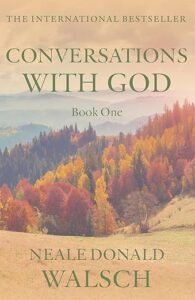
All things that you would look at and say, “Well, this person clearly has some mental illness.” As my father aged, and especially when he got dementia, he became very complimentary. He told me he loved me. He told me he was proud of me. He would hug my wife and say that she was beautiful and he was so glad she came into our family.
These things only happened when he began to lose his mind. I have this hope that that was his internal being or his spirit coming through the clouded mortal mind, which gets in our way all the time, we think that we are our mind, and we are not.
My hope is that you were talking about praying for your grandfather, maybe I would say so much as my prayer is that when I go to whatever is next, the spirit world or whatever. I see my father again, he will be unburdened by his mortal body and mortal mind that was fragile and broken and that we will have a new relationship and that he will be different from the way he was when I knew him here.
That’s a little different, maybe, than praying for what happened in his childhood, but in a way, I’m praying that our future will be changed. I am in a different place, too. If it were 10 years ago and I was thinking about this, or I died and went to the other side, and I saw my dad, I’d probably be angry. Now I have a different feeling. It’s more akin to gratitude that he helped make me who I am, for better or worse.
There’s a concept from Conversations with God and The Little Soul and the Sun, both books are by Neale Donald Walsch. It’s that the person, the soul that is in your life, let’s say a caregiver, volunteered to do this, agreed with both of you that this person would play the villain role and that you would try to remember this agreement, the soul contract, and that you’re going to do your best to see beyond the mask that the person’s wearing.
But it’s hard, you forget, have the veil of forgetting when you come into the physical, when you incarnate, they say in Judaism that an angel is in the womb with you, teaching you the Bible and everything, and then when you’re about to be born, taps you on the forehead and you forget everything.
Otherwise, you’re just going through the motions because you know the movie script. Who would want to go to a movie if they’ve seen the recap? Know how these YouTube videos recap an entire movie in about 10 minutes? Or if you had read the Wikipedia page about the movie before going in, it’d ruin the movie for you.
I believe that this life, as it is taught in Christian theology, is a test. You can’t have a test, and if we could remember everything before, then how would it be a test? We would know. It is the ultimate test, and part of that ultimate test is true agency or freedom to make choices and decisions.
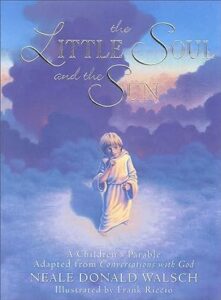
Because that is like the most holy and sacred of all things that God gave us, He doesn’t take it away. Occasionally, He has intervened, and I’ve seen that in my life. I feel that God has intervened in my life to protect me at times. But for the most part, we are free to do good or evil and even to harm other people and other beings against their will. And that freedom is so sacred and so holy that God grants it to us.
In this realm, we go back to the simulation thing; we believe in resurrection in the Christian religion. In my mind, it’s like death feels so real to us here, but when we die, God isn’t sorrowful. We have just moved from one room to another. I believe in a loving God.
I think that the pain that we experience. He knows it’s for our good. Just like I know that it’s for my son, I have a 13-year-old son, and he wants to play sports. He loves sports, and he’s at the age now where he’s starting to do things to build his body. That’s hard work.
Wouldn’t it be easier to just sit on the couch and eat potato chips and then become Tom Brady? It doesn’t work like that. I know that he has to suffer. I know that he has to do hard things. He has to make his own decisions if I make them for him.
If I make them for him for all of his childhood, when he leaves the house, he’s going to be a mess. I know, because that’s what happened to me. I like that comparison for God. That in this world, we have this freedom, even to hurt other people. If we didn’t have this experience, how could we truly grow and learn? How could it truly be a test?
I think it’s so much more than a test. I didn’t say the test thing, but it’s not as simple as, like, “Hey, I’m trying to figure out who’s going to pass and fail.” I think we all benefit from this. It’s more like an experiential test, yes. But there is a growth opportunity for us on this earth.
A fun example of the glitches in the matrix sort of moments, like during our interview, is that I don’t normally look at the clock or at the timer. The first time I did, it was 22 minutes and 22 seconds.
Wow, that’s kind of cool.
I get angel numbers. What they’re called. Are you familiar with the concept of angel numbers?
Yes, I am familiar with it.
It’s another way of passing information from the upper worlds to us down here. Yeah, that was fun. Then you can look it up. You can Google it, angel number meaning 2222 or whatever, and see what kind of draws your eye. Know and trust that you’re being guided to wherever.
In this world, we have this freedom, even to hurt other people. If we didn’t have this experience, how could we truly grow and learn?
I feel like I’m being guided to the image results instead of the regular Google results, or I’m being guided to a particular book about angel numbers. And then I’ll check in with God and see, “Am I receiving this correctly?” Is this the right meaning to apply to this particular number?
For me, the signposts that I have always seen along my way and everyone has their own, I would say, like we’re all different, and you kind of also need to find the way that God speaks to you. A lot of times, for me, it’s feelings, but I also have déjà vu. I know there’s been a lot theorized and written about déjà vu and whave you.
But for me, déjà vu is often connected to a dream or the memory of a dream, and sometimes I have been able to pinpoint that I actually had the dream. Many times, I can’t remember if I actually had the dream or maybe my mind is just remembering something from the past that maybe is just a little hole through that veil, just a little piercing, know, just a little pinhole through the forgetfulness. But for me, déjà vu happens like this. I will be somewhere like in this interview.
And oftentimes it’s when important things happen. There’s something important happening. Releasing my memoir for me is an important moment. I haven’t had a déjà vu yet on this, but I assume there’s probably one coming. But I’ll have this moment where I’m doing something major.
Like when I started my first company, I’m sitting in the office and I’m doing something, I’m like rushing around, I’m stressed out in my mind, trying to pay the bills and make the money and do everything. Because when you start a business, you are everything.
I didn’t even know how to do stuff like pay state taxes. Who knows how to do that stuff when you’re a business owner? You have to learn all kinds of stuff that nobody else has to know. And so I’m stressed and everything.
Then all of a sudden, I just had this moment where I was like, “Oh my gosh, I’ve been here before. I’ve seen this before.” And I stopped for a second, and I feel it. It’s not like any; oftentimes, it’s an important moment, but a mundane moment. It’s not like it was this major thing at that second.
I’ve always thought of that like a signpost. That’s where I was explaining about my idea of fate versus agency. Feel like those were moments where it was like a signpost to say, “Hey, you arrived. You may have taken a different route, but you got here. This is where you were going to come to.” That’s one of the ways I take it.
Another way that I take it, which is different than that, if that’s not the correct answer, because I leave some opening for what the correct answer is. Cause I don’t know for sure.
The other way that I take it is that that was a moment where, like a proud father-son moment, God said, “Hey, good job. You’ve done a good job. You’ve done good things with what I gave you.” There’s that in the Bible, there’s the parable of the talents. “I gave you two talents. You just leveled up to three, so good job. Congratulations.”
Here’s a little flicker to say, “You’ve been here. This is where you’ve been before.” So déjà vu is one of those things along my path that I have felt many times, and I’ve felt this connection to something spiritual, greater to say, “Hey, you arrived here.”
Are you familiar with timelines and timeline theory?
Not particularly now
I think we like this. Your life is a Choose Your Own Adventure. By the way, for young kids, a great book about the power to choose and choosing differently, hopefully benevolent choices. You get a better outcome in the book by being more benevolent, but you get all these different choices. It’s called What Should Danny Do? There’s a series of books. Really cute.
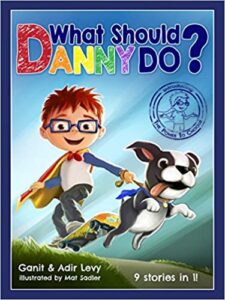
Imagine that you’re getting your life review, your whole life passes by as they say in a near-death experience, that your life is flashing by, and you get all these moments. What if that includes what could have been? How could it be what could have been? Because you actually made a different choice.
Each time you made a choice, either let’s say to do something that you regret now or to do something, maybe not do something that you wish you had done that would have maybe been uncomfortable, but you could have done it, and you didn’t.
What would your life have been if you had made the right choice or the better choice, the more benevolent choice? All of those different versions of your life exist. You make a choice to say the bad thing that you now regret.
There was a version of you that said, “Nope, I’m gonna bite my tongue, I’m not gonna say it. That’s just too mean.” And you get to see all those different versions. What if you have a version of you that maybe didn’t write the book or maybe didn’t do the hard thing at that moment where you had to step up, and you did, but maybe in this version, you didn’t.
So you can learn from not just your life as you lived it, but the versions of your lives that the other versions, the other variants, lived, so that you can learn from that too.
I have a similar concept that I have often thought about, which is that people sometimes really, really simplify in a religious context, heaven and hell. You’re good, go to heaven. You’re bad, you go to hell. For me, it’s just not that simple. God isn’t a computer, zeros and ones.
It’s not black and white. I don’t actually believe in hell. I believe in something different than that. What I believe in is, number one, that when we see our lives after this, and we talk about it in the Christian world, we talk about Judgment Day, and I don’t think Judgment Day is like God is here. I’m here to tell you what you did wrong or whatever. I think it’s a very personal thing where we look back over our lives.
We have that experience that you’re talking about, where we see what we could have done and what we should have done. We stand before a loving God who said, I gave you every opportunity in the world. I think that we, regardless of how well we do in this life, meaning not well as in financial, but like well as in just being a good human, being a good person, making more out of ourselves, regardless of how well we do, I think that we will have regrets.
I think we will look back and say, “Man, there’s so much I could have, even more I could have done.” I think that’s what hell is. And I think that the level of hell depends on how much regret you realize that you have and how much you squandered your time, your life. Those theories have some overlap there, but that’s kind of how I’ve often thought about it. I actually believe in a loving God.
Regardless of how well we do, I think that we will have regrets.
One of the things that I love about the theology of the Church of Jesus Christ of Latter-day Saints is that there is a very limited belief in hell. Hell is essentially reserved for Satan, the evil one and his followers and everyone else has just the fact that you’re here means you chose light just to come here. Everyone else receives glory, but you could receive different degrees of glory based on where you fit.
It’s not like you’re perfect or anything like that, but it’s where you’re comfortable. What degree of glory or realm are you comfortable in because of the way that you have become through this experience? It’s kind of an interesting and different theology that isn’t just heaven and hell and angels or devils or whatever. That’s one of the things I love about the theology of my religion.
Apparently, there are some Kabbalistic terms or ideas in LDS. Or in the Book of Mormon, I don’t know that for sure, but somebody familiar with Mormonism told me that there’s some Kabbalistic roots in there, Kabbalah being the mystical branch of Judaism.
Yes, there are many parallels between the LDS faith and Judaism.
I think John Smith might’ve been really into Kabbalah, from what I remember, somebody explaining this to me. One concept from Kabbalah that might resonate with you is that if you have the desire for something, that means that the fulfillment has already happened.
Whether you say it’s in the future, but time, space, and motion are all illusions. Or if you say that it’s like in an alternate timeline, are you going to jump to that timeline? If you recognize that maybe this is in the ethereal realm and the upper worlds, and it just hasn’t materialized into the physical yet. However, you kind of make sense of it.
I really love this concept that if you don’t have the desire, let’s say I were to tell you about an Indian dessert and say, “Would you like to try it?” “Hmm, maybe, maybe not.” It’s just, if you haven’t tasted it, in the future or in the ethereal realm or whatever, then you probably don’t have the desire for it.

But if you have the desire for it, you’ve probably tasted it. You’ve probably had that fulfillment. Whether it shows up in this lifetime in the timeline you’re on or not, I guess it’s up to you and God, but I don’t know, I just love that concept. Is something like that present in the Mormon faith?
Not exactly, but I’ll tell you where, as you were saying that, what came to me was belief. There’s a heavy emphasis in the LDS, in the Mormon faith, on faith, faith in God, and that faith is not just a passive word, that it is a verb.
Faith leads to action or is action. We don’t believe in being saved. That you say, believe, and I’m saved. Although having that belief changes you and guides you. But we believe that there are works. It’s faith and works. That it’s not enough to just say, I believe in God, and now everything is good and he will accept me as I am, no matter what I do. It’s faith and works.
I’ve wrestled with this a lot, and at one point, I was a bishop in the Mormon Church. Bishop of a congregation, and a bishop is akin to a pastor. Bishops in the Mormon Church are lay ministers, and it’s usually a calling, we call it, that you do for five years. Then another man is asked to be the bishop. You don’t ask to do it. You don’t campaign for it.
You are selected, and your name goes all the way to Salt Lake City, Utah. It goes to the prophet, and they say, “Yes, this man will be the bishop of that congregation.” My congregation was in Las Vegas. It was approximately 450 people in my congregation, and I was their spiritual leader for a time. It was an incredible experience, the hardest thing I’ve ever done in my life, and very rewarding.
I was very blessed during that time, but it was a very difficult thing to be looked to as the spiritual leader of these people. But the reason I’m telling you that is that at that time, there was a person in my congregation who would often get up, and once a month, we have this open meeting, which we call a testimony meeting, where people can get up and share their faith in God and Christ and everything.
He would always get up and say things, and he would say, “You know, I just want to tell you all that God loves you no matter what.” And I was like that, I know that’s true. But I also knew that he was using that to justify actions that I knew displeased God.
I struggled with this for a while, and then I reached this realization like an epiphany, where I realized the question was never whether or not I was loved by God or you are loved by God or anyone’s loved by God.
God loves all of us unconditionally. But the question is, “Do I love God?” It’s not, “Does God love me?”
God loves all of us unconditionally, just like I love my son unconditionally. But the question is, “Do I love God?” It’s not “Does God love me?” It’s “Do I love God?” That’s kind of where the faith and works come in, is that I want to show my love to God by following what he has taught, knowing that if I do that, I will become a better version of myself.
It’s like the ‘choose your own adventure.’ I’m choosing better and better versions of myself. That’s been a guiding thing for me to put like an arc to my story. I come out of that childhood, and I go on a mission as you see those LDS, Mormon missionaries, two guys or two gals together with their black name tag and everything.
I went to Brazil, and I went all the way down to Brazil, and I learned to speak Portuguese, and that was my first education. Honestly, it was learning to speak Portuguese. I came home and said I want to go to college. I want to make something out of my life, and I have this high mountain to climb.
I had to get my GED, which I did at 21. I took the ACT exam because I was hoping to get into college. I was sitting in a room with a group of juniors and seniors in college. And here I was, almost 22 years old.
I completely bombed that test after studying for months because I was trying to make up for at that point, a lifetime of education that I didn’t have. I couldn’t do it in two or three months, but eventually, after being turned away by essentially every college and university.
My sister-in-law, whom I moved to Las Vegas, where my brother lived with his wife at the time. She helped me learn basic math and things. We went to a learning store. We picked up grade books from grades three to 12.
She helped me go through these grade books to learn how to do things like multiply and divide and do times tables. Really basic stuff that kids are learning in second, third, and fourth grade. I went down to UNLV. My sister-in-law made an appointment for me to sit with an admissions counselor at UNLV in Las Vegas.
I sat down with this admissions counselor. I am telling you, I was sweating bullets. I was so nervous. I mean, imposter syndrome, like you wouldn’t believe. All of that. But through that and through practically tears in my eyes, I told her about being a child, working as a child my whole life, not having an education, struggling and just being denied by every college and just how I wanted to go to school.
I knew that because I had learned Portuguese, I could do it. She said, “We will give you a shot. You can come for two semesters as a non-admitted student, essentially auditing classes, but we will keep the grades. And if you get a passing grade,” she didn’t set a very high bar; it was like a 2.5 GPA or something like that. “If you get passing grades for two semesters, then we will admit you, and you will be an admitted student. Those courses can count towards your degree.”
I was thrilled. I did that. I went for two semesters. I got a 4.0. But, of course, I didn’t take Math 101 for my math classes. In all my other classes, I started at 101. But for math, I had to start at 95. Then I had to do 96. So I had to work my way up to Math 101.
Those early classes didn’t count toward my degree, but I eventually graduated at 34 years old from the University of Nevada, Las Vegas, with a degree in business administration. For me, it was an incredible accomplishment, and it was one of those mountain peaks that I didn’t think would be possible for me.
Then there are many, many more that happened after that. Just climbing, climbing, got at my side, my beautiful wife. She has been an incredible part of my life. I get to the end of the book, and I tell people that I accepted everything that happened to me because I’m so happy to be who I am and where I am.
I hope that the message of hope that comes to others is to say, ‘whatever the dark night of the soul that you’re going through right now, there is light on the other side, and it can turn into something that benefits you, and it’s really hard to see in the moment.’
I’m not standing here saying my life is perfect. I have many things I need to overcome. I’m still working to try to overcome my shortcomings, like the anger that I inherited from my father that often comes to the surface. I’ve had to apologize to many people for it. There are still problems, but I’m so blessed to be where I am, and I hope that my story can inspire someone else.
I’m sure it does, and it almost certainly already has. You already have 120 reviews, and who knows how many people actually consume the book. Most people don’t write a review. I’m sure it’s already having its ripple effect, and who knows how many timelines and universes.
Let’s put it out there, but on all timelines.
Yeah, amazing. What would be the last bit of parting wisdom that you want to share with our listeners?
Whatever God you believe in, believe that there is something else there. This life is not just what it appears on the surface. There’s something more.
Man, just God is good. Whatever God you believe in, believe that there is something else there. That this life is not just what it appears on the surface. You know there’s something more. You felt it. If you’ve listened all the way to here, then you know that there’s depth of life and depth in what’s happening here. And when you believe that, then believe that everything that is happening, good, bad, or whatever, can be for your benefit.
And if you’re in that dark night right now, then hold on and keep making the right choices to move forward. I would say if you haven’t read The Power of Now, read it. Also, along with that, read religious text, whichever one speaks to you. For me, the Bible and the Book of Mormon have been the religious texts that have spoken to me, but read the religious text that speaks to you. Find strength in that. There’s more here than meets the eye. It will all be OK.
Yeah, it will. Awesome. Great life advice, great wisdom. Thank you, Calvin, for your vulnerability and authenticity and your light.
Thank you, Steph. I’d say the same to you.
Yeah, thank you. And thank you, listener. Now go out there in the world and make it a better place. We’ll catch you on the next episode. I’m your host, Stephan Spencer, signing off.
Important Links
Connect with Calvin Bagley
Books
Businesses/Organizations
People
Previous Marketing Speak Episode
Previous Get Yourself Optimized Episode
YouTube Videos


